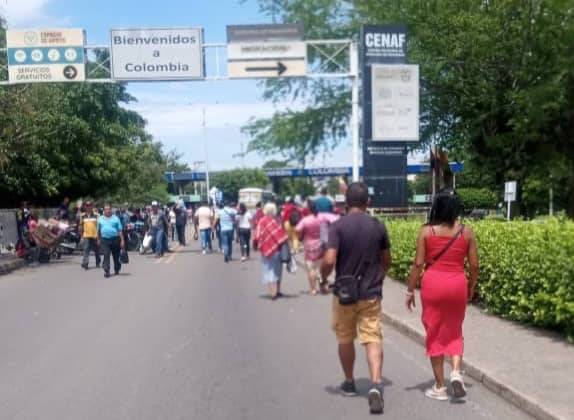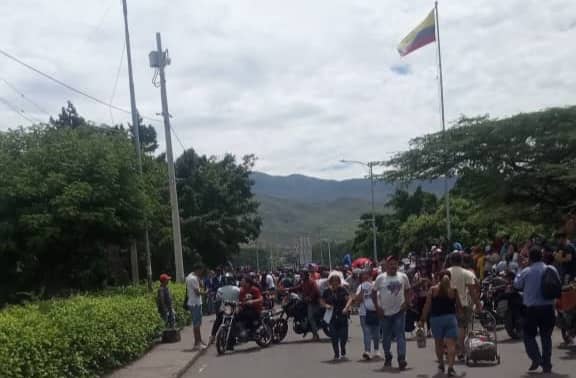
In the morning hours of this Friday, September 27th, a group of people, including cargo and passenger transport, formal and informal vendors from the La Parada district in Norte de Santander, blocked the entry and exit of vehicles through the Simón Bolívar international bridge that connects Venezuela with Colombia, in rejection of the controls and exorbitant charges by Colombian officials to Venezuelans.
By: Luz Dary Depablos | Correspondent lapatilla.1eye.us
The protest that began on Friday morning with hundreds of people, most of them merchants from the La Parada district, moved on to the international bridge, where they took the fences of Migración Colombia and blocked the passage in rejection of the “exaggerated controls and extortion by the Colombian police to the Venezuelans,” as stated by Elena Sánchez, a resident of San Antonio (Venezuela) who was caught in the middle of the protest, to lapatilla.1eye.us.
“Let’s see if they will now us work. Cúcuta without Venezuelans, commerce does not move,” said Carlos Parada, a Colombian merchant.

Around noon, the vehicular and pedestrian passage on the Simón Bolívar international bridge was completely reestablished. Several protesters agreed with some Colombian authorities to hold a meeting next Monday, in order to present the situation they are suffering and the possible solutions to prevent their sales from continuing to be affected by the strict controls on traffic.
It is worth noting that the La Parada sector, a few meters from the Simón Bolívar bridge, is the area where thousands of Venezuelans daily go to make purchases of groceries, cleaning products and medicines for personal consumption or to be sold in small stores or grocery stores in Venezuela. In other words, the economy in that border area depends mainly on Venezuelan buyers.
However, since security controls were intensified, it seems that the Colombian authorities are going overboard in charging fines, between 200 and up to 500 dollars, to those who cross the border in their private vehicles and do not present proper documents.
For this reason, Colombian merchants are asking for the passage of Venezuelans to be made more flexible, since these controls would be affecting their sales.
On the Venezuelan side, the National Guard also blocked the passage of citizens through the San Antonio del Táchira Customs, who are recommended to cross the border through the other international bridges located in the town of Ureña.

